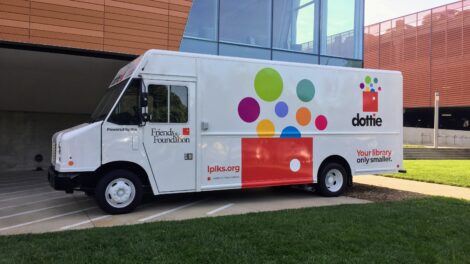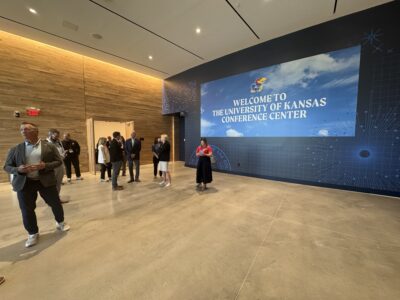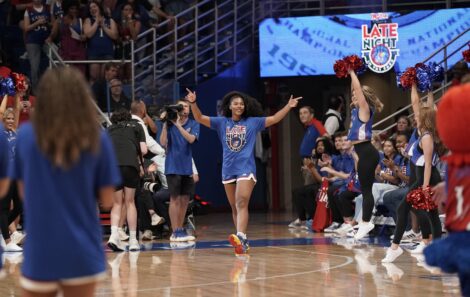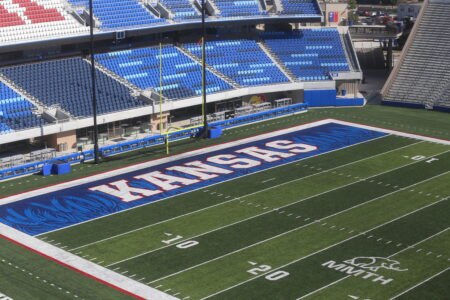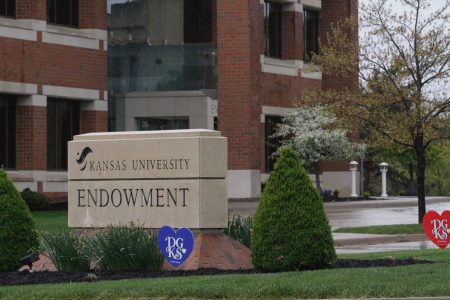Summer STEM camp challenges students to design products for people with disabilities

photo by: Dylan Lysen
Camp students Bennett Meoli, center, and Aadi Pore, right, work with project partner Carleigh La Voy to design a cup holder for La Voy's wheelchair.
A summer camp held in Lawrence this week asked high school students interested in science, technology, engineering and math to consider another important aspect of creating products for others: empathy.
Design the Future, a weeklong STEM camp held on the University of Kansas campus, allowed area students to not only design and build products for people with disabilities but work firsthand with three people who use wheelchairs to better understand the challenges they face.
“(I’m) realizing that if we all come together, we can help other people,” said Aadi Pore, a senior at Olathe East High School who attended the camp. “Basically, we have to empathize with the people we are building the product for, which I had no idea about before. That’s something that I will use in the future.”
The program, which is offered by Oakland, Calif.-based company DC Design, came to Lawrence for the first time this year with the help of camp coordinator Libby Johnson, a Lawrence native and KU alumna. She said this summer was the first year the company held the camp outside the state of California, where it began at Stanford University in 2015.
Johnson said the purpose of the company and its STEM camp is to add a socially conscious aspect to the students’ education.
“The students are learning to apply their skills for social good and I think that is extremely important,” she said. “The objective of Design the Future is to show they have the power to make a positive impact on someone they know or their community.”
The students did just that while working with three area project partners, who use wheelchairs for a different array of disabilities. Brett Whorley, an engineering graduate student at KU, served as a coach for the camp because he was excited to help the students understand how they can use engineering to help others.
“They shouldn’t take for granted some of these daily activities that we use throughout our life,” he said. “It’s kind of eye-opening for them to realize our project partners have difficulty with tasks that are simple for us on a daily basis, such as holding a bottle of water.”
David Hosch, one of the project partners who is from Olathe, asked the students to help him build a portable desk he could use with his wheelchair. Hosch, who has one leg, said products he’s tried to use in the past have not balanced well on his lap. To address the issue, the students attempted to build a desk with a different stabilizing device.
After coming up with the concept, the students got to work building their product. They used carved wood – even cutting and sawing it themselves in the wood shop in KU’s Marvin Hall — and 3D printers to create bits and pieces needed to create their designs.
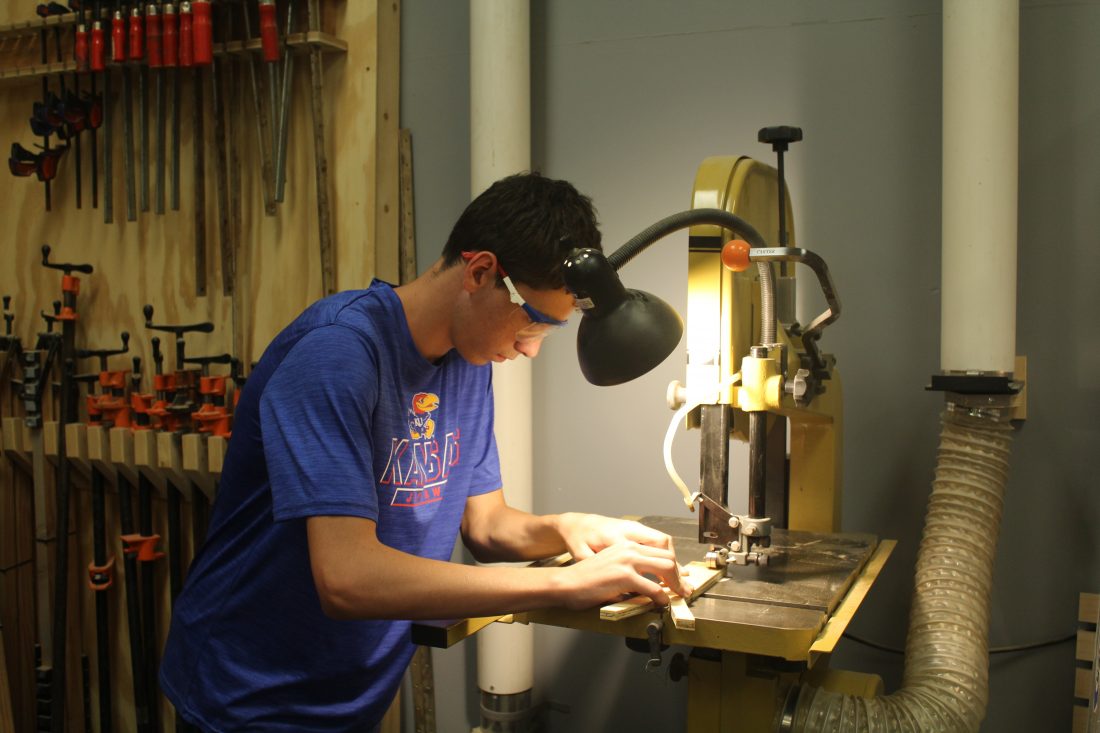
photo by: Dylan Lysen
Student Mac Clemmons cuts a piece of wood in KU’s woodshop in Marvin Hall to rework a design of a desk he is building for a man who uses a wheelchair.
The prototypes were then shown to the project partners, allowing them to test out the students’ product and give feedback. With the feedback, the students would rework their designs to be the best product possible for their partners.
Hosch said he appreciated the process because he was able to share why some “universal” products aren’t actually all that useful for him.
“They can’t just build something and throw it at someone and say ‘use it,'” Hosch said. “They are learning the process and everything they have to go through to make something adapted for disabled people.”
Tom DeAgostino, an associate professor of mechanical engineering at KU and one of the coaches for the camps, said the process is a good learning experience for the students.
“If you want to motivate students, especially young students, they need purpose for doing (the work),” he said. “This really puts a profound purpose to it, and I think the students really appreciate that.”

photo by: Dylan Lysen
From left, students Mac Clemmons, Erik Gieb and Alyssa Hain discuss a table they designed with project partner David Hosch, right.
Deb Young, a project partner from Lawrence, said she decided to participate in the program because she wanted the students to design a personal cup holder for her wheelchair. But once the students got to work, they went much further and began designing a multipurpose product that included a desk for the chair, she said.
Along with receiving a specialized product, Young, who is a retired educator, said she thoroughly enjoyed working with the students as they tested and crafted the perfect product for her.
“Having the opportunity to work with these guys and watch their creativity and ability to relate to other people has been phenomenal,” she said.
Although the camp was stimulating and challenging, Pore said he also found it to be rewarding in another way.

photo by: Dylan Lysen
Camp coach Forrest Sparks, center, speaks to students about their cup holder design for Deb Young, left.
“I’m having a lot of fun,” Pore said. “I enjoy being busy, but more importantly I’ve enjoyed helping other people just doing what I like to do.”
The summer STEM camp is accepting applications for high school students who would like to attend next year’s event at KU, Johnson said. Those who are interested may find more information at youdesignthefuture.com.
Contact Dylan Lysen
Have a story idea, news or information to share? Contact reporter Dylan Lysen:
- • dlysen@ljworld.com
- • 785-832-6353
- • Twitter: @DylanLysen
- • Read other stories by Dylan


